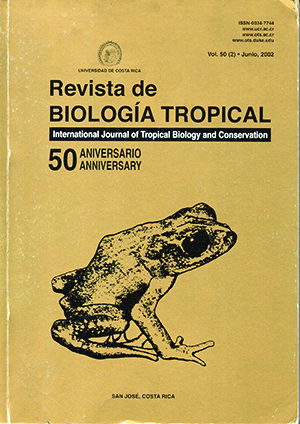Abstract
We used classical culture techniques to explore gut bacteria and changes associated with dietary change in the highly polyphagous, tropical caterpillar Automeris zugana (Saturniidae). Fifty-five third instar wild-caught sibs feeding on Annona purpurea (Annonaceae) in the Área de Conservación Guanacaste (ACG) in northwestern Costa Rica were divided into eight groups. Each of seven groups was reared to the ultimate instar on another species of food plant normally used by A. zugana. Some pupae were also analyzed for the presence of bacteria. Aerobic bacterial cultures were obtained from all 33 caterpillar guts and the eight pupae inventoried. There was no clear pattern in species composition of cultivated bacteria among the eight diets, and each caterpillar on a given food plant carried only a small fraction of the total set of species isolated from the set of caterpillars feeding on that food plant. Taken as a whole, the larvae and pupae contained 22 species of cultivable bacteria in 12 genera. Enterobacter, present in 81.8% of the samples, was the genus most frequently isolated from the caterpillars, followed by Micrococcus and Bacillus. Bacillus thuringiensis was isolated from 30.3% of the dissected caterpillars, but found in caterpillars feeding on only half of the species of food plants.##plugins.facebook.comentarios##

This work is licensed under a Creative Commons Attribution 4.0 International License.
Copyright (c) 2002 Revista de Biología Tropical
Downloads
Download data is not yet available.


